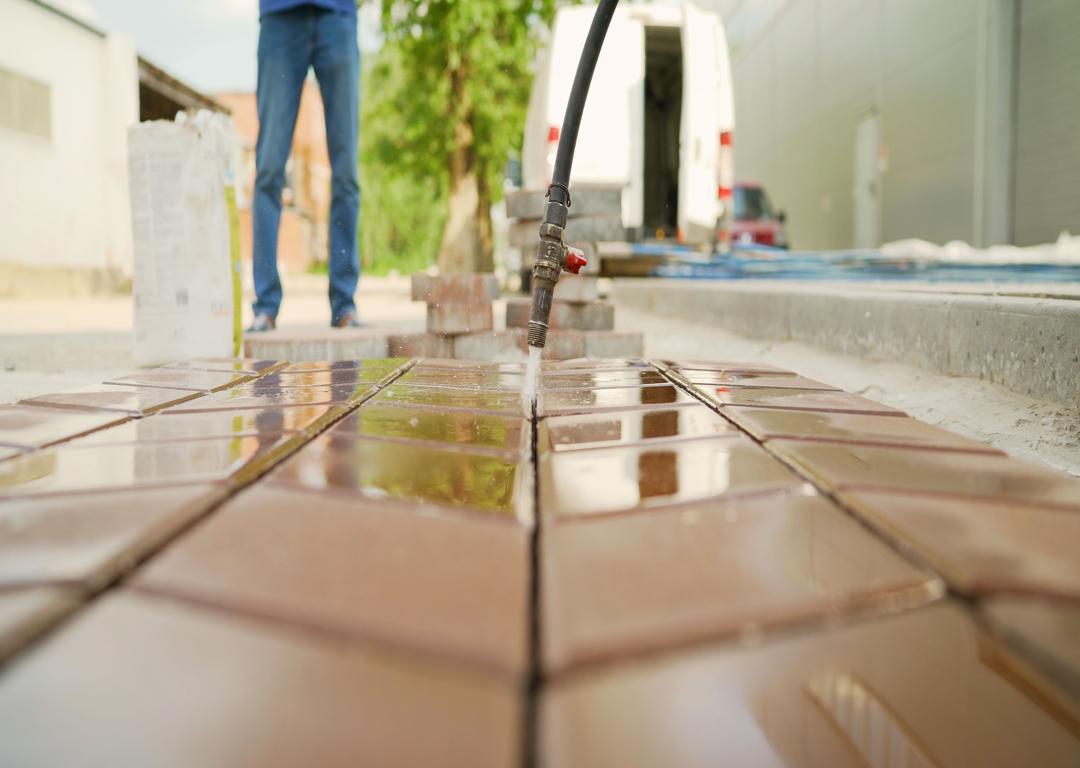
Pressure grouting, also known as jet grouting or permeation grouting, is a specialized technique used in foundation repair to stabilize and strengthen soil and rock beneath a structure. This process involves injecting a grout mixture under pressure into the ground to fill voids, fractures, and weak zones, effectively improving the load-bearing capacity of the soil. Understanding how pressure grouting works and its benefits is crucial for those seeking reliable foundation repair solutions.
How Pressure Grouting Works
The injection process starts with drilling small diameter holes, called injection points, into the ground at strategic locations around the foundation. A grout mixture, which can consist of cement, sand, fly ash, or other materials, is then pumped into these injection points under high pressure. This pressure forces the grout to penetrate voids and weak zones in the soil. As the grout fills these voids and fractures, it expands and hardens, creating a solid mass that stabilizes the soil and enhances its load-bearing capacity.
Several types of grout can be used in pressure grouting, depending on the specific needs of the project. Cementitious grout, made from cement, water, and sometimes sand or fly ash, is commonly used for its strength and durability. Chemical grout, composed of polyurethane, acrylic, or other synthetic materials, is useful for sealing fine cracks and providing flexibility. Compaction grout, a thick, low-mobility grout, compacts loose soil particles as it is injected, improving the density and stability of the soil.
Various techniques are employed in pressure grouting, each suited for different types of soil and structural issues. Permeation grouting involves injecting a low-viscosity grout that permeates the soil without significantly disturbing it, making it ideal for stabilizing loose or granular soils. Compaction grouting uses a thicker grout to displace and compact the surrounding soil, improving its density and stability. Jet grouting utilizes high-pressure jets of grout to mix and stabilize the soil in situ, creating columns of stabilized soil beneath the foundation.
Benefits of Pressure Grouting
One of the primary benefits of pressure grouting is the significant improvement in the load-bearing capacity of the soil. By filling voids and stabilizing weak zones, the grout creates a solid, reinforced mass that can support the weight of the structure more effectively. This is particularly important for foundations built on unstable or variable soils.
Pressure grouting helps to stabilize the ground beneath a structure, reducing the risk of settlement, shifting, and other forms of structural movement. This enhanced stability is crucial for preventing foundation damage and ensuring the long-term integrity of the building. Additionally, grout can act as a barrier to water infiltration, sealing cracks and voids that might otherwise allow water to penetrate and weaken the soil. This is especially beneficial for structures located in areas with high groundwater levels or prone to flooding.
Pressure grouting is a versatile technique that can be adapted to a wide range of soil conditions and structural issues. It can be used for everything from residential foundation repair to large-scale infrastructure projects, making it a valuable tool in the field of geotechnical engineering. By understanding the science behind pressure grouting and recognizing its benefits, property owners and engineers can make informed decisions about the best methods for foundation repair and soil stabilization.
Pressure grouting offers a reliable and effective solution for enhancing the stability and load-bearing capacity of soil, ensuring the long-term safety and integrity of structures.
At Idaho Concrete Lifting, we specialize in pressure grouting to provide durable and effective foundation repair solutions. Our expert team uses the latest techniques and high-quality materials to ensure your property remains stable and secure. By choosing pressure grouting, you invest in a long-term solution that protects your property from the challenges of unstable soil and foundation issues. Contact Idaho Concrete Lifting today to learn more about our services and how we can help you achieve a stable and secure foundation.